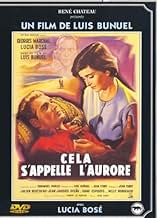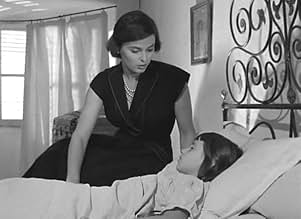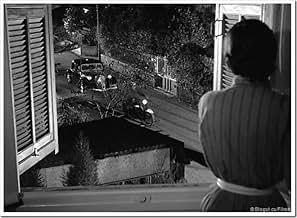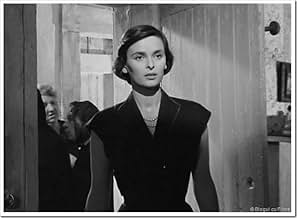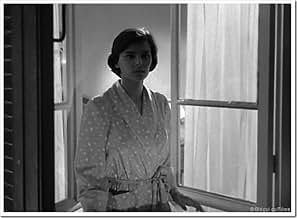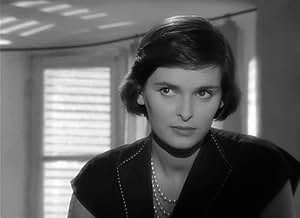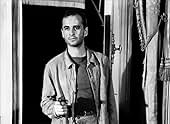This must be one of Bunuel's most accessible works.It's often hard to find the master's touch but ,although it sometimes recalls Italian neorealism (all that concerns Sandro's family),the picture of the Christ -the only element of surrealism in the whole work- signals Bunuel's inimitable talent.
Georges Marchal,who was good friend with the director, portrays a charitable doctor,almost what we could call a secular saint.He's got a practical mind and he does what Nazarin and Viridiana will try to do in the name of God .He is l'Honnête Homme ,in the Bunuelesque sense of the term.Religion is not part of his life and however ,he is always around when it comes to lending a hand to his fellow men.
The man of God ,the priest is also here ,but he's in the boss's bourgeois house : when the distraught Sandro (Gianni Esposito) comes to him,he tells him "go back home,my son" ,when the poor man has got no more house or wife.
The movie tells the story of a man leaving slowly but inexorably the discreet charm of the bourgeoisie.First step is falling for a woman who is not part of his milieu (Lucia Bosé).Second step is breaking up with his wife (and his father-in-law) .Third and final step is refusing to become an informer and finally joining his friends ,all working class men .
Georges Marchal gives an effective warm performance.His character is very close to the one he will play in Bunuel's French follow up "La Mort en Ce Jardin".That raider might possibly be the doctor estranged from his country,milieu and family.Both have got a practical mind: in "La Mort En ce Jardin", Marchal lights a fire with the pages of the Bible.
Bunuel's obsessions are still here : the mistreated donkey,the girl raped by her grandfather,the boys playing at soldiers and blindfolding one of them before shooting him.But they do not seem to matter much next to the hero's line of thought :this be called the dawn of his life.

